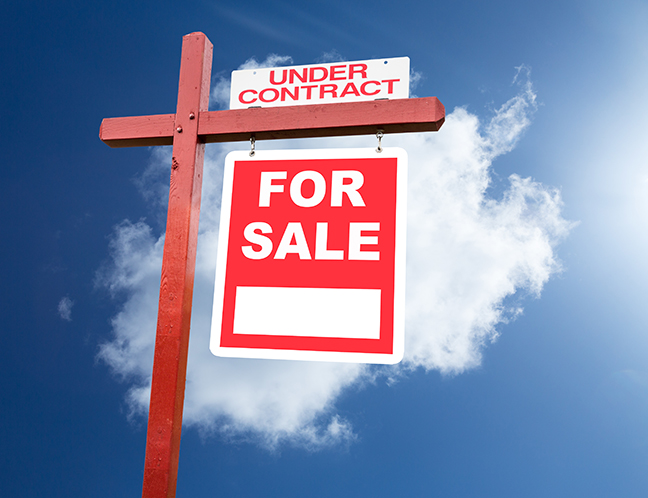The 6 Steps That Happen After Your Property is Under Contract
A property going under contract is a milestone step in the journey towards buying a house, but it is not the finish line. After the contract has been signed, there are still some important steps to follow before the deal is finalized. Consider the following lists of what to expect during the in-between period after the contract is signed and before the closing, to help the buyer in the progression toward finalizing the sale of a home.
1. The Escrow Check will be Cashed
An escrow account is essential for ensuring that both the buyer and the seller of a house are being held accountable by a third party. Once the contract is officially signed, the escrow check may be cashed as it is now acting as a deposit on the home from the buyer. Sometimes the escrow deposit will be counted towards the purchase price, and sometimes it will be used to carry out the inspections and appraisals that need to be ordered to finalize the sale. The buyer should understand that although this money is usually non-refundable, it also gives them a significant amount of vestment in the home they want to own.
2. Tons of Paperwork
While the property is under contract, spend some time reading the seller’s disclosures. Familiarize yourself with all of the details about the property to make sure that the buy understands exactly what they are getting into. Make sure to walk them through city reports and the preliminary title. They should know the neighborhood and how their home fits into it, and also know the city and the specifics of the property from a legal standpoint.
3. Pre-Approval
The buyer should start researching mortgage companies as soon as they sign a contract for the property they want. They should talk to their bank about interest rates and try to lock in a rate until the closing of the house. The goal is to get pre-approval for a mortgage as soon as possible to move the buying process along quickly. Once approved, the bank can order inspections and appraisals on the home.
4. Property Inspections
The property inspection might sound like a logistic just to be checked off the list, but it can also be a great opportunity for the buyer to learn more about their future home. Be there for the inspection if possible to get a more detailed, technical understanding of the home in question. Doing so will give you and the buyer a chance to see if any maintenance work needs to be done to the house, and allow you to learn essential facts like where the breakers and water heater are located, and other important owner information.
5. Appraisals
An appraisal is one of the final and most important steps after signing a contract on a home. Once the results of the appraisal are in, you will know if further negotiations are necessary. The appraisal being completed is also a good sign from a mortgage perspective because they will not complete one unless there is a very good chance that the buyer will qualify and be finally approved to move forward with closing on the home. The appraisal should be read and reviewed in detail by both the buyer and the seller.
6. Closing Time
Once the appraisals are done, your mortgage goes through, and the pricing details are discussed, you are just about done with the journey to homeownership. The final step is to get the “clear to close” and arrange a closing day. Make sure everyone brings ID and any other important documentation to the closing. After another round of intense paperwork, it’s time to start planning the house warming party.
Signing a contract is a significant step in the home buying process, but it is certainly not the time to sit back and relax. The period between signing the contract and closing on the house is essential for getting questions answered and for learning as much as possible about the property and the details of the exchange.



